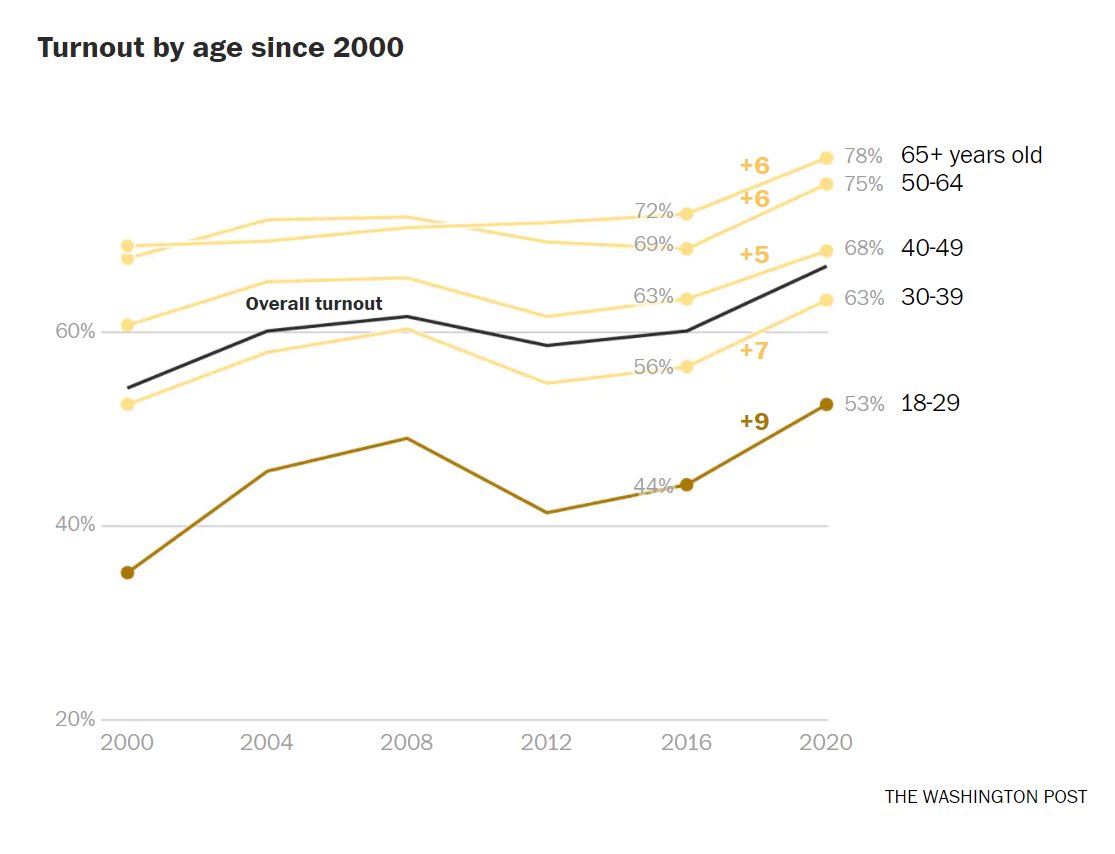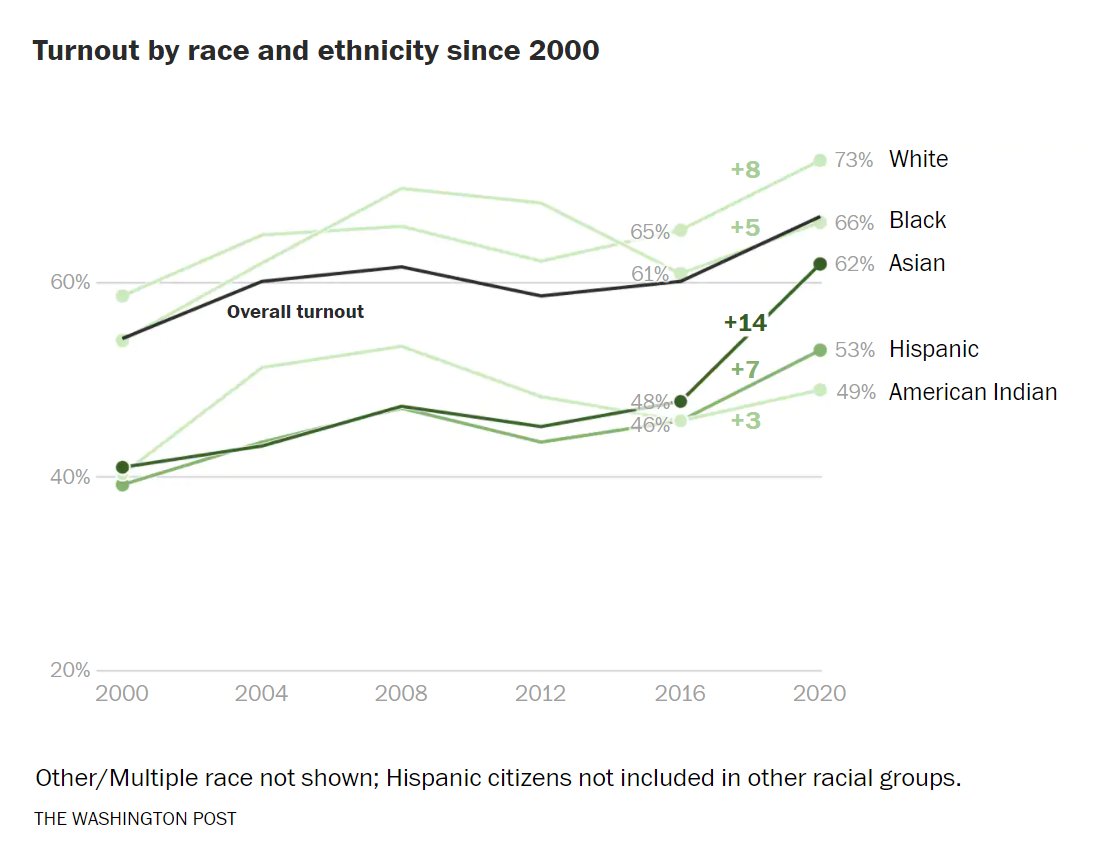
Turnout in the 2020 election surged to the highest level of any election in 120 years. Recently released census data shows just how broad the surge in turnout was across demographics. wapo.st/3oouQU1
For the first time, most Americans under age 30 voted.
That’s a continuation from 2018, when surging youth turnout helped fuel century-high turnout in a midterm election. But younger voters still have a long way to go to catch their elders.
That’s a continuation from 2018, when surging youth turnout helped fuel century-high turnout in a midterm election. But younger voters still have a long way to go to catch their elders.

Turnout rose among all racial and ethnic groups in 2020, although Asian Americans saw the largest increase, from 48 percent turnout in 2016 to 62 percent in 2020.
Hispanic turnout also reached a majority for the first time, with 53 percent voting in the 2020 election.
Hispanic turnout also reached a majority for the first time, with 53 percent voting in the 2020 election.

Education is a core dividing line in political participation, but in 2020, Americans of all levels of voted at much higher rates than in 2016.
The biggest shift came among those in the middle of the educational spectrum with some college education or an associate’s degree.
The biggest shift came among those in the middle of the educational spectrum with some college education or an associate’s degree.

Most Americans voted before Election Day for the first time in 2020, after many states expanded mail-in voting amid the pandemic.
While 2020 marks a year of epic participation, roughly 1 in 3 eligible voters still did not cast ballots. washingtonpost.com/politics/2021/…
While 2020 marks a year of epic participation, roughly 1 in 3 eligible voters still did not cast ballots. washingtonpost.com/politics/2021/…
• • •
Missing some Tweet in this thread? You can try to
force a refresh









